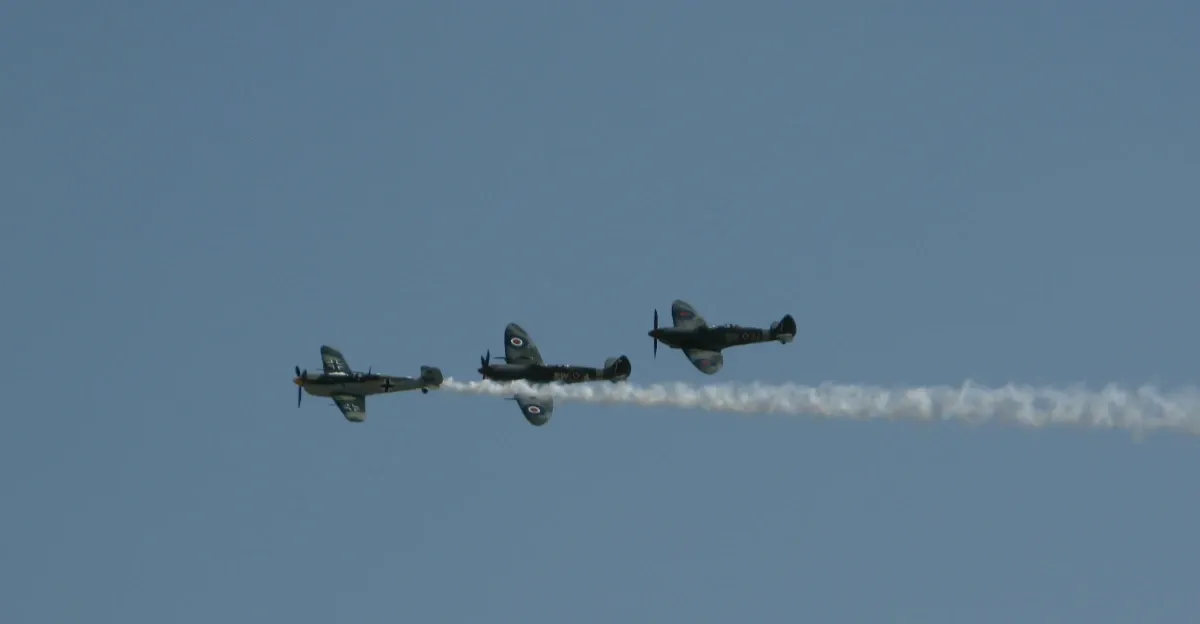The Bank: Kick the Can and Second World War Shootouts

Part of my childhood memoir series set in Swansea during the late 1950s and early 1960s
Across the road from our house on Wern Fawr Road was The Bank, an unassuming strip of land with old garages, overgrown grass, and a handful of crumbling concrete shelters. To anyone else it might have looked like waste ground. To us it was everything: battlefield, spaceport, football pitch, forbidden zone. We'd vanish there for hours, grubby and loud, completely absorbed in whatever drama we were staging.
The Bank was really the last slope of Kilvey Hill before it flattened into railway lines, the dual carriageway, and then the King's and Queen's docks with the bay beyond.
The Air-Raid Shelters
There were three old air-raid shelters, or so we believed. Each had a name: the White Shelter, the Red Shelter (the tallest), and the Underground Shelter, which was our favourite for any game that required mystery or danger.
The Underground Shelter's dark corners made it perfect for hiding, but most of our serious play happened in the open space between them. That's where we played Kick the Can, a sort of hide-and-seek-meets-tag marathon that could last half the day. A tin can was placed on a ridge or lump of ground. One player guarded it whilst the rest of us crept around, trying to boot it away. Anyone caught went to "prison" until someone managed a heroic sprint and sent the can flying, which freed everyone.
When we grew bored of tactics, we turned to shelter jumping: literally leaping from the roof of the Red Shelter to the Underground Shelter, again and again, until someone's mother appeared at a window yelling for us to stop being idiots.
Fighter Pilots and Fictional Wars
Our most regular entertainment was re-enacting the Battle of Britain. We zoomed around with arms stretched out as wings, rattling off machine-gun fire with our mouths. I always wanted to be a Spitfire pilot, blissfully unaware they had stopped making Spitfires years before.
There were also wildly politically incorrect Second World War shootouts: Brits versus Germans. We blasted away with stick machine-guns and died in spectacular fashion. The Germans always collapsed shouting "Achtung!" or "Heil Hitler!" or "Britisher Schweinehund!" whilst the Brits would mutter a calm "God Save the Queen" before crumpling nobly to the ground. Historically nonsense, yes, but it proved our natural gift for stiff upper lips even in the face of imaginary gunfire.
Sometimes we switched to Fireball XL5, the sci-fi puppet show, or Zorro. That meant arm-waving, imaginary sword fights, and loud "Urgh!"s when someone scored a dramatic hit. We never used real sticks for swords. Even as children we seemed to know someone would lose an eye if we tried.
The Garages
The garages on the Bank were just as important as the shelters. In winter, their long wall of corrugated metal and peeling paint served as our football goals. In summer, we chalked cricket stumps onto the doors and played endless, mostly rule-free innings.
Those garage doors were ours. They became battlements during wars, wickets during cricket, and spaceship controls when we launched ourselves into orbit.
Hidden History
Years later, Mam told me those garages had once been a makeshift ambulance depot during the war. The same doors we chalked stumps on, the same walls we pelted with footballs, had been part of a life-and-death operation.
Whilst we were playing at war, we were literally running around on ground marked by the real thing. We had no idea. To us, it was just a perfect playground, with no ghosts attached.
Looking back, there is something both touching and unsettling about that. We were free to turn a former ambulance depot into our private kingdom because the real war was over, because the adults had survived it and moved on. Our carefree games were possible only because their serious games had ended.
Perhaps that is what childhood is: the luxury of playing at war because the real war has finished, the freedom to imagine danger because the actual danger has passed. The Bank gave us that, and we never knew we owed it a debt.